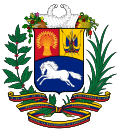State visits
Vietnamese President Nguyễn Minh Triết arrived in Caracas on 18 November 2008 for a two-day official visit on an invitation from Chavez. [5] Triết hailed Vietnam's friendship with Venezuela as he sought to focus on tying up oil and gas deals, including a joint development fund. He said that, "We (Vietnamese) are grateful for the support and solidarity that they (Venezuelans) have offered us until now."
After Chavez's visit to Vietnam in 2006, his government stepped up bilateral relations with the country, which also included a visit by the Communist Party General Secretary, Nông Đức Mạnh, in 2007. Petroleos de Venezuela and PetroVietnam also announced a number of joint projects since the 2006 visit, including when PetroVietnam's was given a concession in the Orinoco basin and an agreement to transport Venezuelan oil to Vietnam, where the two would together build an oil refinery that Vietnam lacks. On the 2006 visit, Chavez praised Vietnam's revolutionary history as he attacked the United States for its "imperialist" crimes in the Vietnam War. On the 2008 visit, Triết returned similar comments as he lauded a group of Venezuelans who captured a US soldier during the Vietnam war in an unsuccessful bid to prevent the execution of a Vietnamese revolutionary. [2] The two leaders also signed a deal for a $200 million joint fund and 15 cooperation projects. [6]
This page is based on this
Wikipedia article Text is available under the
CC BY-SA 4.0 license; additional terms may apply.
Images, videos and audio are available under their respective licenses.


